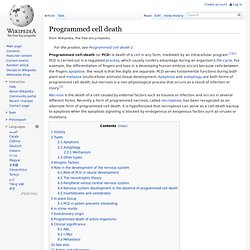

Brain Death and Reanimation. What constitutes death?

For years, it was when a heart stopped, but we've developed technologies that can restart a heart. It seems that the only true marker of death is the cessation of all electrical activity in the brain. This would probably explain why it's been impossible for the longest time to achieve anything close to full scale reanimation of a corpse. But then, why can't we just restart a person's brain after it's stopped? The best answer I can think of is that when a brain dies, it is usually because the brain died from a lack of oxygen.
So is there a way to combat this problem? When I was younger, I heard a story about a girl who got into a car accident. How can this be? Everyone knows that the body heals itself whenever it's injured, right? Maybe. So does this mean that all of us can survive brain death if given the proper care? It seems that the answer is a no. The woman I saw had to be retaught pretty much everything. So it seems that once 'we' die, we die for good. Programmed cell death. Necrosis is the death of a cell caused by external factors such as trauma or infection and occurs in several different forms.

Recently a form of programmed necrosis, called necroptosis, has been recognized as an alternate form of programmed cell death. It is hypothesized that necroptosis can serve as a cell-death backup to apoptosis when the apoptosis signaling is blocked by endogenous or exogenous factors such as viruses or mutations. History[edit] The concept of "programmed cell-death" was used by Lockshin & Williams[4] in 1964 in relation to insect tissue development, around eight years before "apoptosis" was coined.
Since then, PCD has become the more general of these two terms. The first insight into the mechanism came from studying BCL2, the product of a putative oncogene activated by chromosome translocations often found in follicular lymphoma. PCD has been the subject of increasing attention and research efforts. Types[edit] Apoptosis[edit] Apoptosis. In contrast to necrosis, which is a form of traumatic cell death that results from acute cellular injury, in general apoptosis confers advantages during an organism's lifecycle.

For example, the separation of fingers and toes in a developing human embryo occurs because cells between the digits apoptose. Unlike necrosis, apoptosis produces cell fragments called apoptotic bodies that phagocytic cells are able to engulf and quickly remove before the contents of the cell can spill out onto surrounding cells and cause damage.[5] Research in and around apoptosis has increased substantially since the early 1990s. In addition to its importance as a biological phenomenon, defective apoptotic processes have been implicated in an extensive variety of diseases. Excessive apoptosis causes atrophy, whereas an insufficient amount results in uncontrolled cell proliferation, such as cancer. Discovery and etymology[edit] German scientist Carl Vogt was first to describe the principle of apoptosis in 1842. Frozen Frog Comes Back To Life.
Chemistry. Disease. Microbiology.